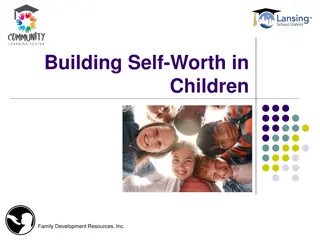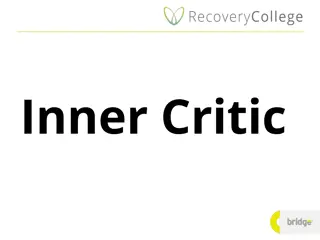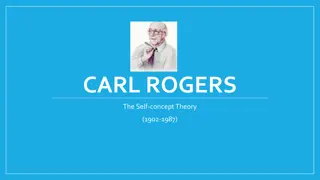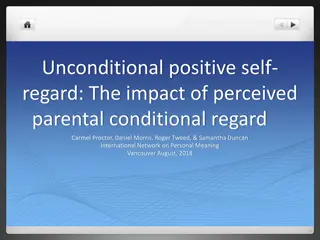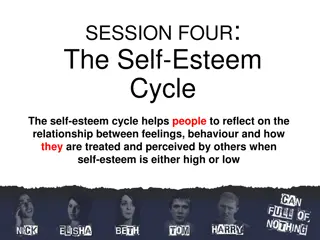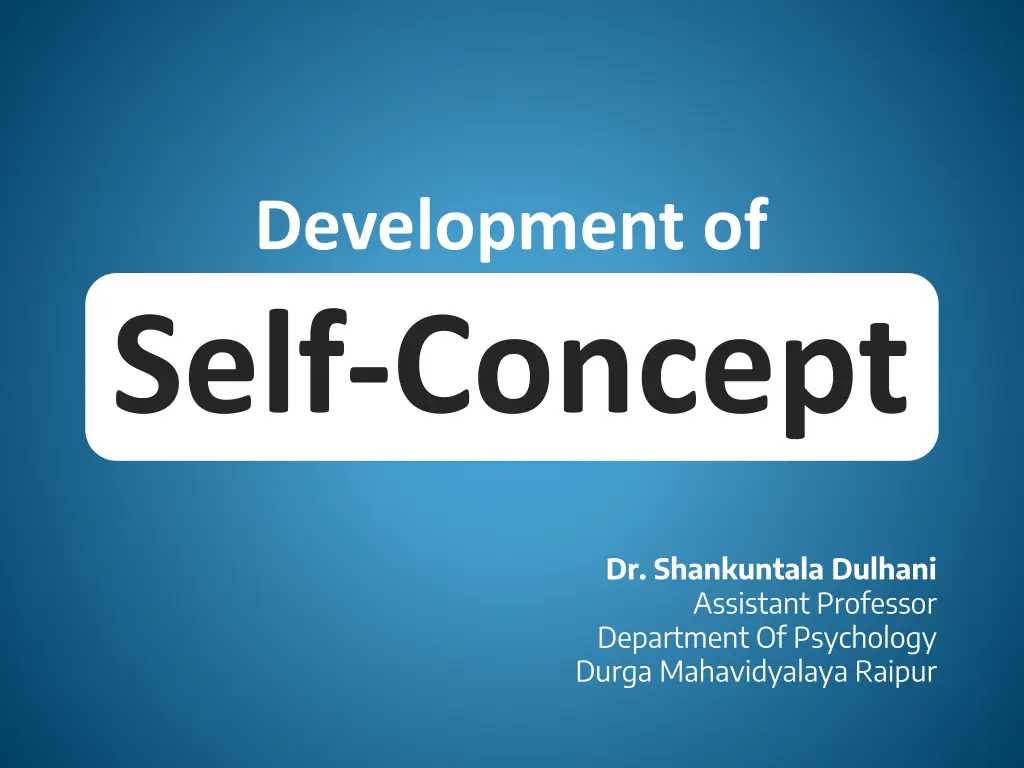
Understanding the Development of Self-Concept in Childhood
Explore the stages of self-concept development in childhood, including the components of self-concept proposed by Carl Rogers. Discover how self-concept evolves from infancy to middle childhood, shaping individuals' perceptions of themselves and their place in the world. Gain insights into the importance of nurturing positive self-esteem and self-image from an early age.
Uploaded on | 0 Views
Download Presentation

Please find below an Image/Link to download the presentation.
The content on the website is provided AS IS for your information and personal use only. It may not be sold, licensed, or shared on other websites without obtaining consent from the author. If you encounter any issues during the download, it is possible that the publisher has removed the file from their server.
You are allowed to download the files provided on this website for personal or commercial use, subject to the condition that they are used lawfully. All files are the property of their respective owners.
The content on the website is provided AS IS for your information and personal use only. It may not be sold, licensed, or shared on other websites without obtaining consent from the author.
E N D
Presentation Transcript
Development of Self-Concept Dr. Shankuntala Dulhani Assistant Professor Department Of Psychology Durga Mahavidyalaya Raipur
Paper II (A) B.A. Part 3 Development of Self-Concept
What is self-concept? The individuals belief about himself or herself including the person s attributes and who and what the self is the self concept is an important term for both social and humanistic psychology.
Components of Self-Concept Card Rogers believes that self-concept has three different components:- (i) Self Image- The view you have of yourself. (ii) Self esteem/self worth- How much value you place on yourself. (iii) Ideal-self- What you wish you were really like.
Development Stages of Self-Concept Self- concept develops and changes throughout the lifespan, but it is most in flux during the early years There are three general stages of self-concept development during childhood: Stage I (0-2 years) (i)Babies needs consistent, loving relationships to develop a positive sense of self. (ii)Babies form preferences with their innate sense of self. (iii)Toddlers feel secure with gentle but firm limits. (iv)At two-year old language skill is developing and toddlers have a sense of me
Stage II (3-4 years) (i)Three and four years olds begin to see themselves as separate and unique individuals (ii)Their self images tend to be descriptive rather than prescriptive on judgmental. (iii)Preschoolers are increasingly independent and curious about what they can do.
Stage III (5-6 years) (i)They are transitioning from the me stage to the us stage in which they are aware of the needs and interest (ii) Kindergartens can use their words to communicate their wants, needs and feelings. (iii)Five and six years old can use even more advanced language to help define themselves within the context of the group.
Self-Concept in Middle Childhood:- During middle childhood (about7-11 years old) children are beginning to develop a sense of their social selves and figuring out how they fit in with everyone else. In this stage development of a personal sense of self. Culture begins to play a big role at this stage.
Self-Concept in Adolescence:- Adolescence is where the development of ones self-concept really takes off. This is the stage in which individuals play with their sense of self experimenting and comparing and being to develop basic self-concept which stays throughout the rest of their life. During this period adolescence are prone to greater self-consciousness and susceptibility to the influence of their peers in part due to the changes happening in the brain. When students have a healthy sense of self worth and self esteem they contribute to a greater self-concept.
Factors influence and individuals self-concept From the various factors that influence an individuals self concept, the focus will be directed towards the following: (i)Age (ii)Gender (iii)Education (iv) Media (v)Culture
Thank Thank You! You!


